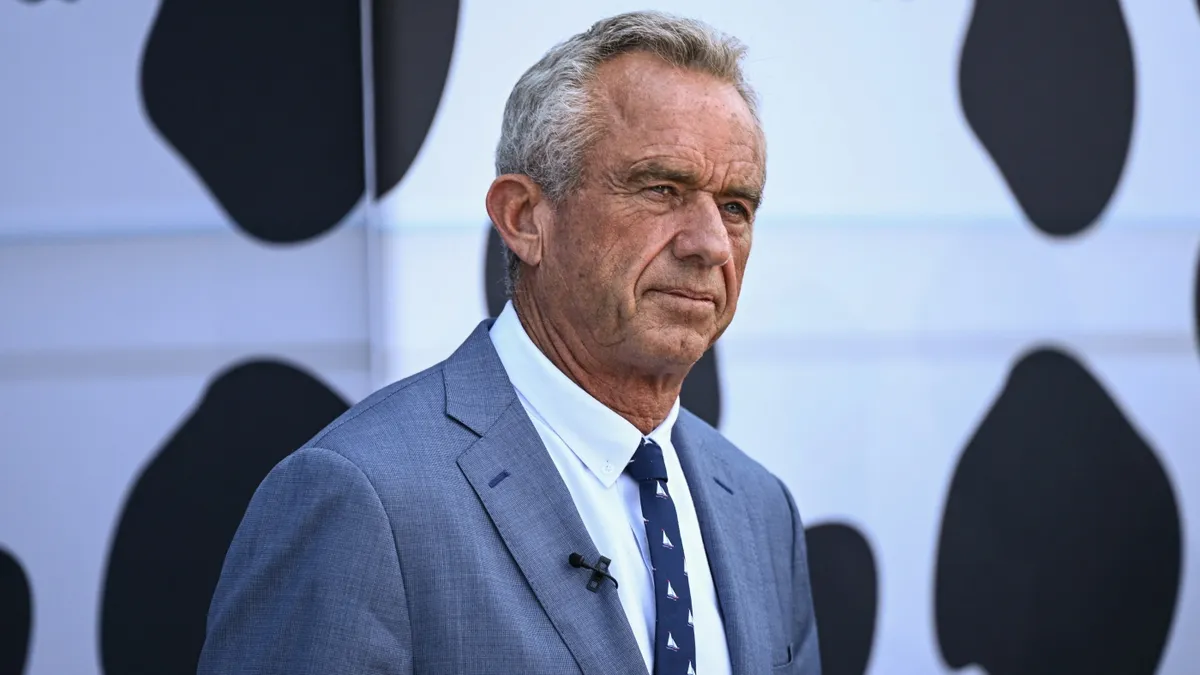
Health and Human Services Secretary Robert F. Kennedy Jr. is reportedly considering the dismissal of members from the U.S. Preventive Services Task Force (USPSTF), an advisory panel comprised of primary care experts. This potential move has raised significant alarm among leading medical organizations, including the American Medical Association (AMA). The initial report of this plan was published in The Wall Street Journal, stirring worries among healthcare professionals.
Dr. Bobby Mukkamala, president of the AMA, expressed his apprehension, stating, "It's very concerning — and it's not the first time we've been concerned." The AMA's concerns stem from Kennedy's recent actions, which included dismissing members of a different advisory panel focused on vaccines for the Centers for Disease Control and Prevention (CDC). In their place, Kennedy appointed individuals who primarily lack the necessary expertise in vaccines, immunology, and patient care.
Dr. Mukkamala fears that a similar situation could emerge with the USPSTF. This independent group of experts is crucial in guiding primary care practices and is convened by the Agency for Healthcare Research and Quality under the Department of Health and Human Services, which Kennedy supervises. "When you have something good and you don't know if it's going to be replaced with something good, it's just a risk that nobody should take," Mukkamala cautioned.
The USPSTF has been instrumental in reviewing data and formulating recommendations to prevent various diseases since its establishment in 1984. Dr. Alexander Krist, a family physician at Virginia Commonwealth University and a former chair of the USPSTF, noted, "Probably every patient I see, I'm using about five to 20 of their guidelines to make sure that I'm keeping that person healthy." These guidelines encompass essential preventive measures, such as mammograms for breast cancer screening and colonoscopies for colon cancer, as well as managing conditions like high blood pressure, diabetes, obesity, depression, and anxiety.
Overall, the USPSTF curates approximately 100 guidelines for preventive care that span from newborns to the elderly. Many primary care clinicians regard these guidelines as the most reliable source for their recommendations. Dr. Michael Barry, an internal medicine researcher and professor at Harvard Medical School, who is also a former member and chair of the USPSTF, emphasized that this trust stems from decades of consistency, careful vetting of new members for conflicts of interest, and a solid methodology in decision-making.
Should Secretary Kennedy proceed with the dismissal of the current USPSTF members, experts warn that it could lead to a significant decline in trust regarding these vital guidelines. Dr. Krist stated, "Clinicians are going to be left struggling to understand what they should be doing and who they should be listening to in terms of preventive care for America."
Since the enactment of the Affordable Care Act in 2010, the USPSTF guidelines have been closely linked to insurance coverage for preventive services. Earlier this month, the AMA, along with over 100 other health organizations, sent a letter to Congress urging them to protect the integrity of the USPSTF from any political interference, whether intentional or unintentional. The letter's signatories warned that a loss of trust in the rigorous and nonpartisan work of the Task Force could have devastating effects on patients, hospital systems, and payers.